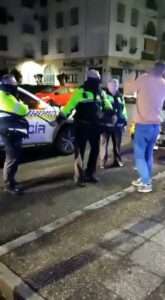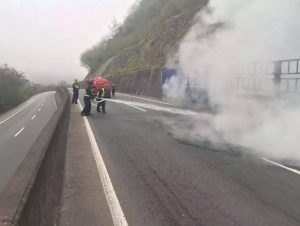A 96-year-old former concentration camp secretary on trial for her alleged role in the mass murder of more than 11,000 people hid the commander who ran it in her apartment after the war.
This has been revealed during the trial of Irmgard Furchner, 96, who stands accused of complicity in the mass murder of 11,412 people at the Stutthof concentration camp that operated near the city of Gdansk in occupied Poland during World War II.
It has also been revealed during her trial that her husband, who was a Nazi SS soldier during World War II and who she married after the end of the conflict, testified in 1954 that he was aware that people had been gassed at the concentration camp.
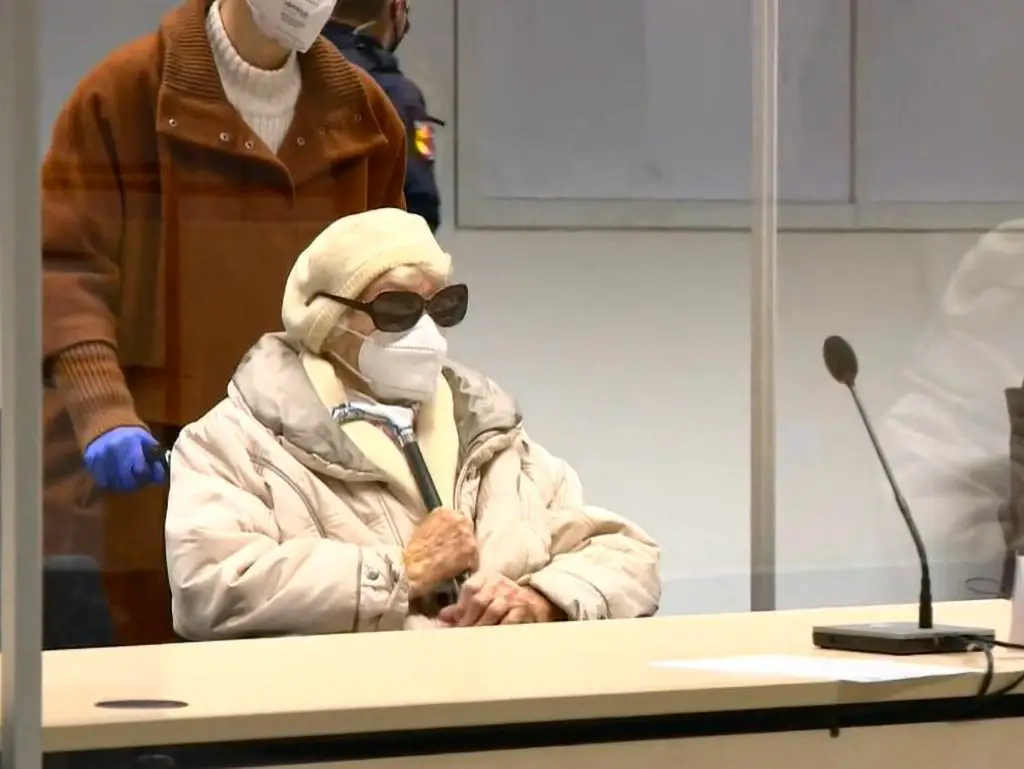
This is according to historian Stefan Hoerdler, who has spoken on numerous occasions during the ongoing trial. He said the defendant hid SS soldiers in her apartment after the war, including the concentration camp commander, Paul Werner Hoppe.
Hoppe was jailed for just nine years in the 1950s for being an accessory to murder.
The trial is taking place in Germany’s northernmost state of Schleswig-Holstein.
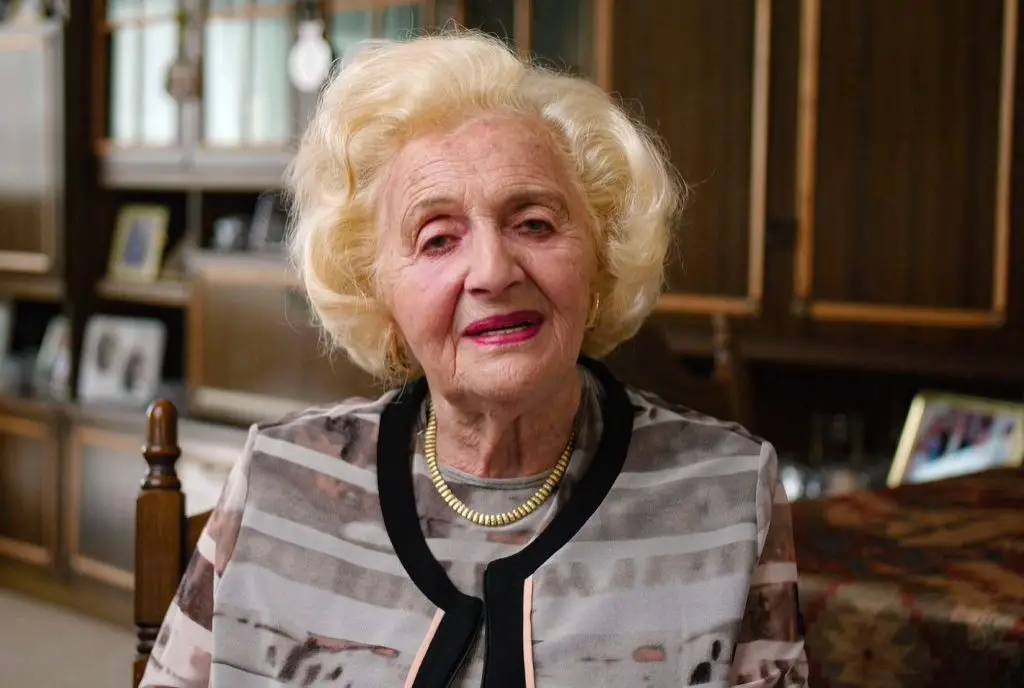
Historian Stefan Hoerdler told the court about numerous testimonies pertaining to the mass murders committed at the Stutthof concentration camp near Gdansk. One of these testimonies was given by the defendant’s husband, name not reported, who she married after the war, and who was a former SS soldier, who said in 1954: “People were gassed in the Stutthof camp. They talked about it in the commander’s office.”
Another piece of testimony, from another former SS officer, unnamed, from 1974, states that he had observed six cases in which men and women were forced to board train cars before another SS officer wearing railway worker clothes climbed onto the roof and poured something into the wagon.
Hoerdler quoted that the witness had said at the time that he had only found out later that the people in the train car had been gassed to death.
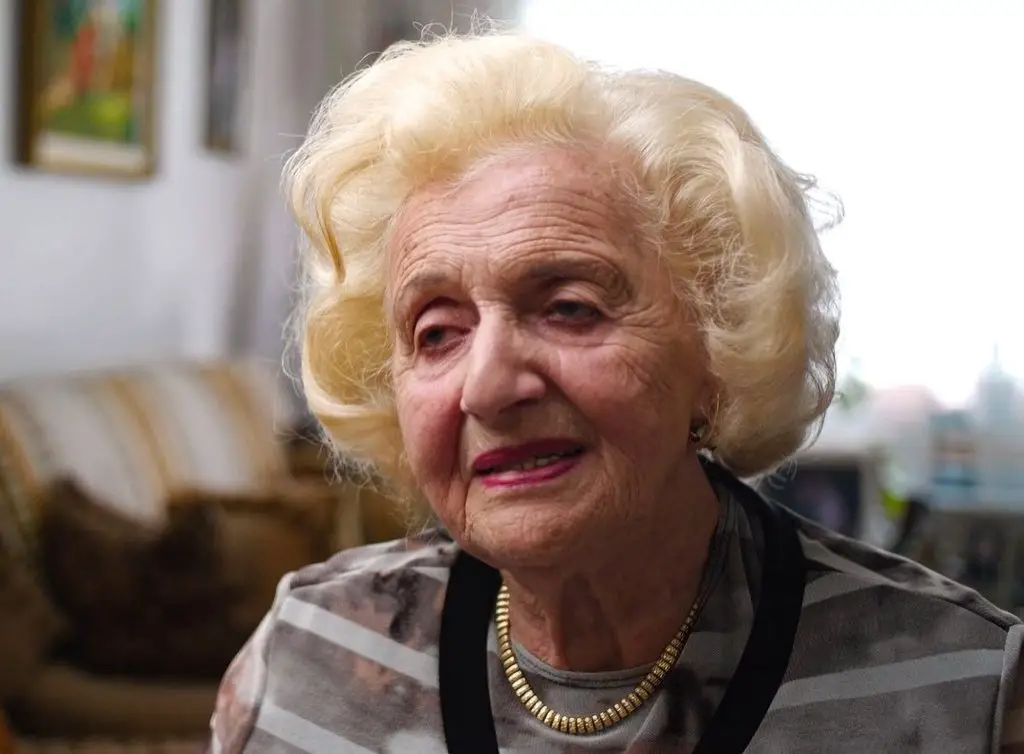
Irmgard Furchner claims in her defence that she had no knowledge of the mass killings despite, in her job as secretary to the camp commander, reporting directly to the SS. The public prosecutor’s office accuses her of having assisted in the systematic murder, from June 1943 to April 1945, of thousands of people.
The SS, which is short for Schutzstaffel, was a Nazi paramilitary organisation under the direct control of Heinrich Himmler and loyal to the Third Reich’s Fuhrer, the dictator Adolf Hitler.
The infamous organisation was responsible for countless war crimes during the bloody conflict that engulfed Europe. The defendant is facing trial after initially going on the run in a bid to avoid it but she was quickly caught by the German authorities.
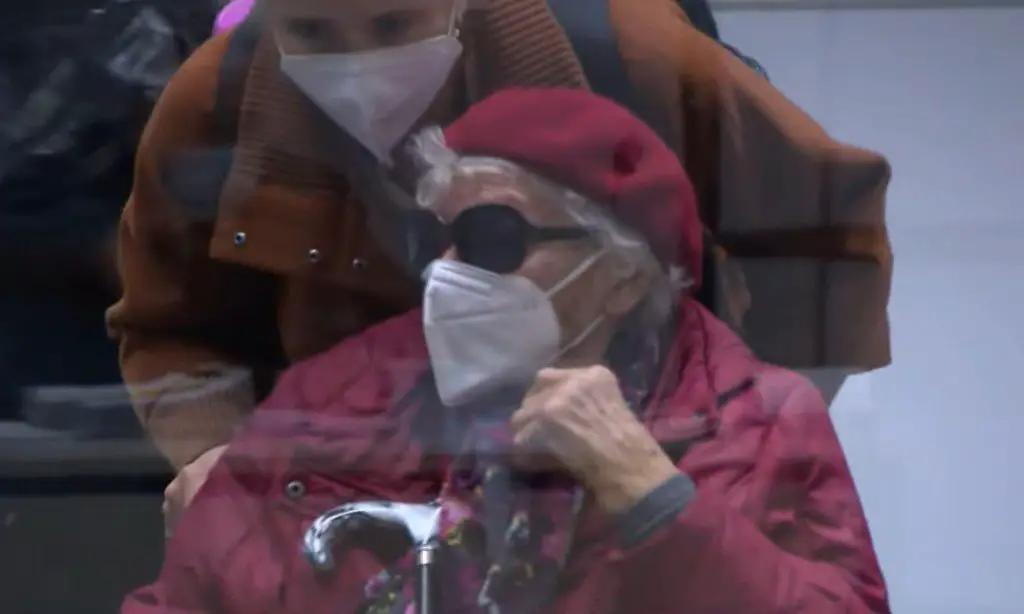
Furchner was expected to appear at the Itzehoe Regional Court on 30th September, but the trial was initially suspended after the judge was informed that the defendant had gone missing. She had previously written a letter to the court dated 8th September telling the judge why she believed she was not fit to stand trial.
It read: “Due to my age and physical limitations, I will not attend the court dates and ask the defence attorney to represent me.
“I would like to spare myself these embarrassments and not make myself the mockery of humanity.”
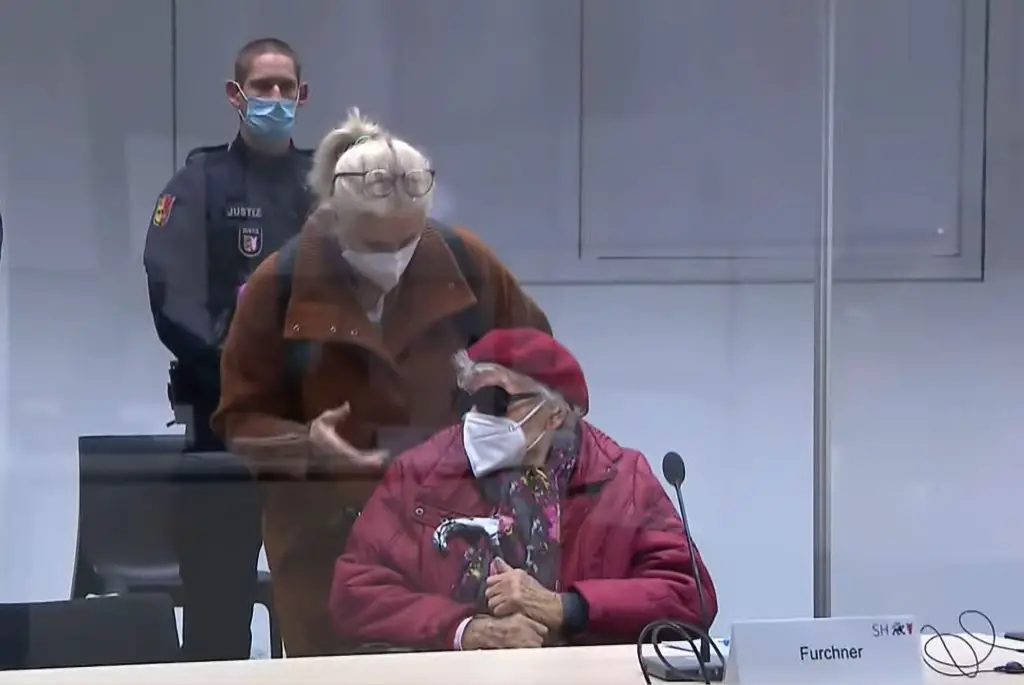
Despite the letter, the court did not appear to believe that Furchner would make a run for it and as a result, she was allowed to come and go freely in the build-up to the 30th September trial.
In the escape attempt, Furchner left her retirement home in the town of Quickborn, Hamburg, jumped in a taxi and failed to show up at the trial. Thomas Walther, an assistant prosecutor in the trial, told the German news site Tagesspiegel that the court failed to take the letter seriously.
He said: “The court did not react in any way. You just waited.”

Police arrested the 96-year-old woman just hours later and held her in custody for five days. It was not revealed where she had gone.
There have been numerous poignant moments during the ongoing trial, including when Onur Oezata, the lawyer for three of the concentration camp survivors tried to make an opening statement on behalf of the victims, but the court reportedly opposed this.
This led Oezata to accuse the presiding judge Dominic Gross of trying to silence them. He reportedly said: “You want to silence us! They are downgrading us to extras!”

The lawyer was backed up by his colleague, a lawyer representing co-plaintiffs and named as Christoph Rueckel, who appealed to the court to focus on cooperation rather than confrontation, arguing that the words of the victims should not be cut short.
The judge put his decision down to scheduling difficulties but quickly backtracked, saying: “To conclude from this that these ladies and gentlemen should not be heard is simply absurd.”
The Stutthof concentration camp was established by Nazi Germany near the village of the same name, now called Sztutowo and located in Poland’s Pomeranian Voivodeship, on 2nd September 1939. It soon developed into a huge complex of 40 sub-camps across several locations. Up to 110,000 people were deported there until its liberation by the Allies on 9th May 1945.
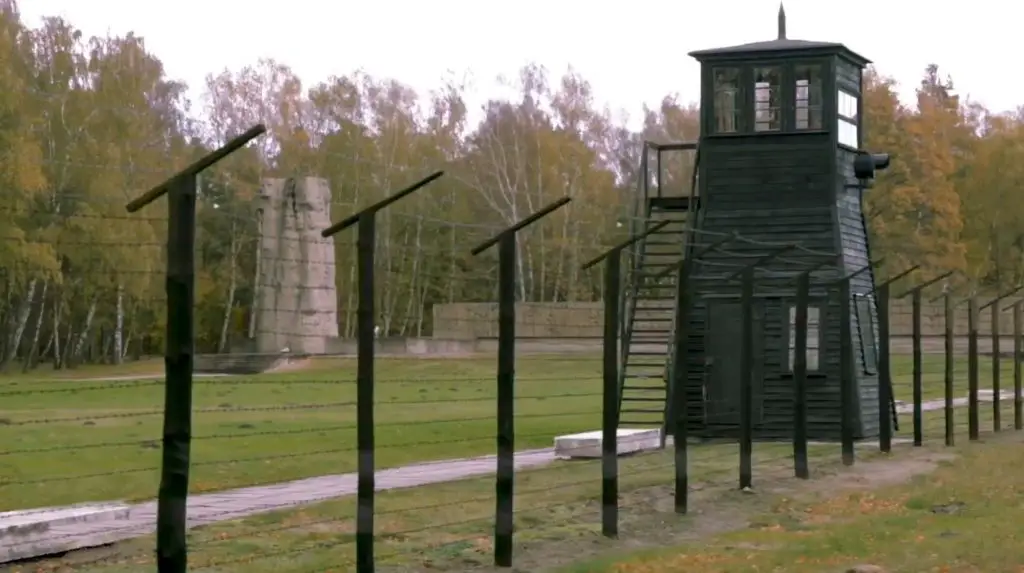
Asia Shindelman was born in Lithuania in 1928 and was taken to a ghetto with her parents in 1941 after Nazi Germany occupied the Baltic region. She was sent to Stutthof, where she was received by SS guards armed with whips and dogs, three years later.
Through an interpreter, she told the court that the SS guards were given free rein to do anything they pleased, including “kill us”. She and other Jewish women were taken to a sub-camp, where they were made to dig trenches for defence purposes, a month later.
Shindelman survived the ordeal and now lives in the US state of New Jersey. She hopes her testimony will help to bring Irmgard F. to justice.
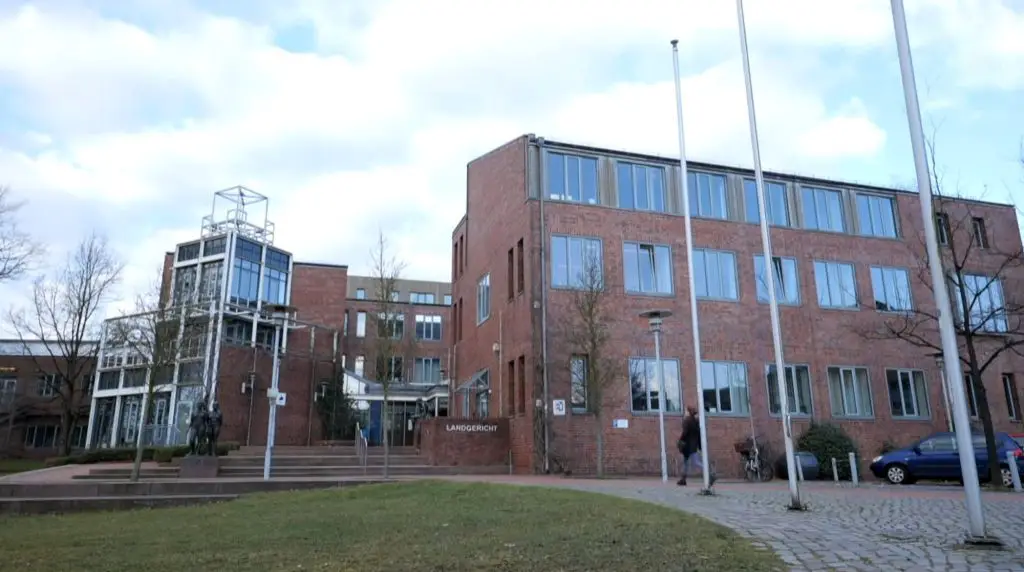
The trial is ongoing.

